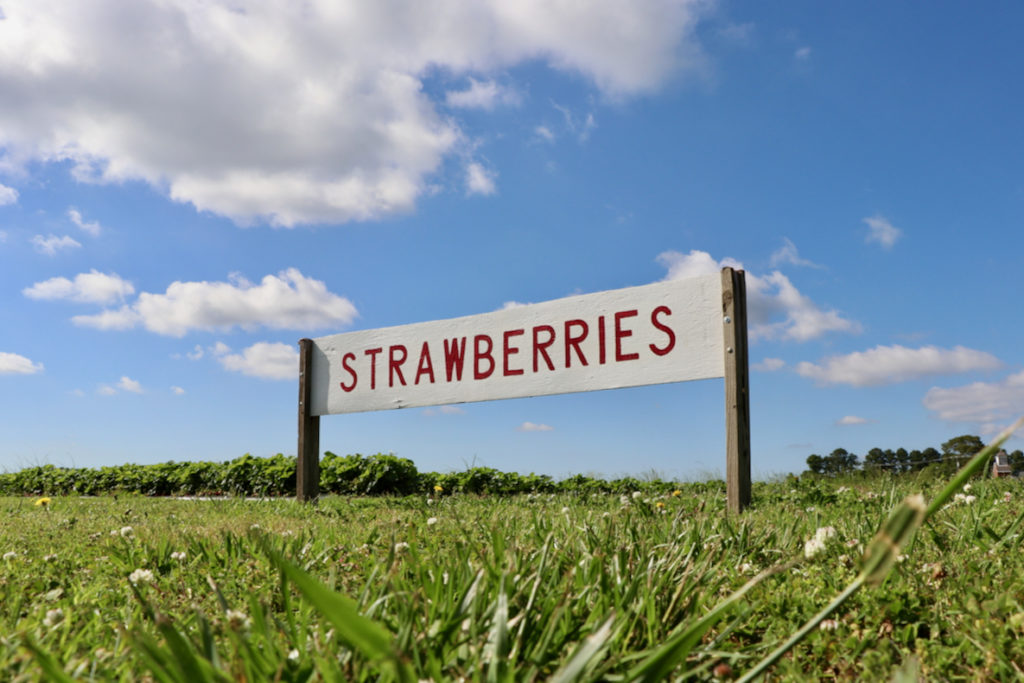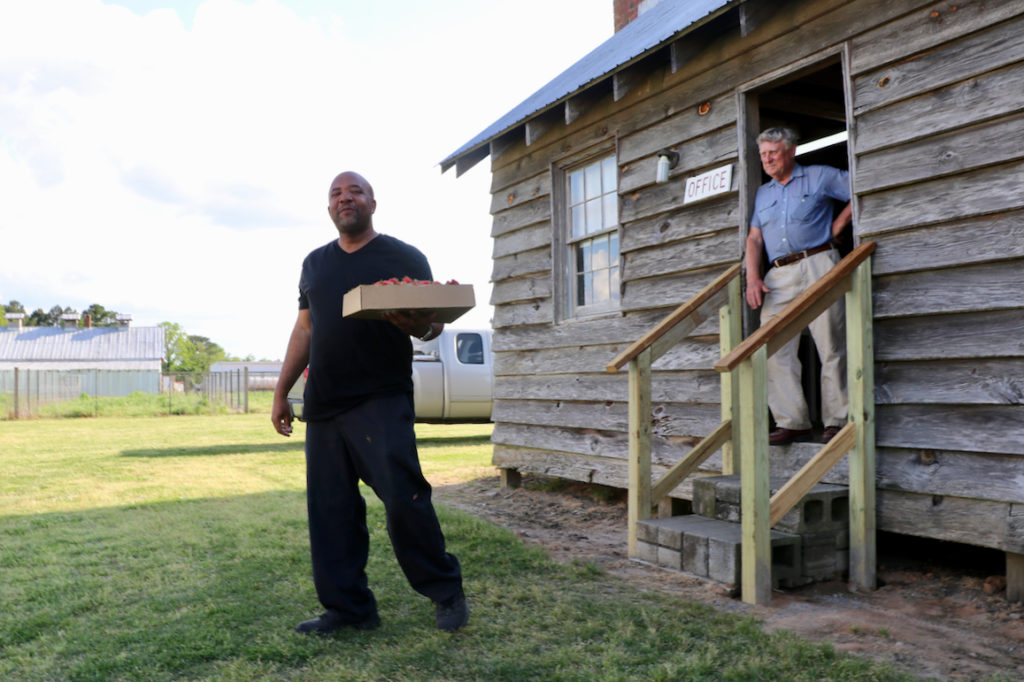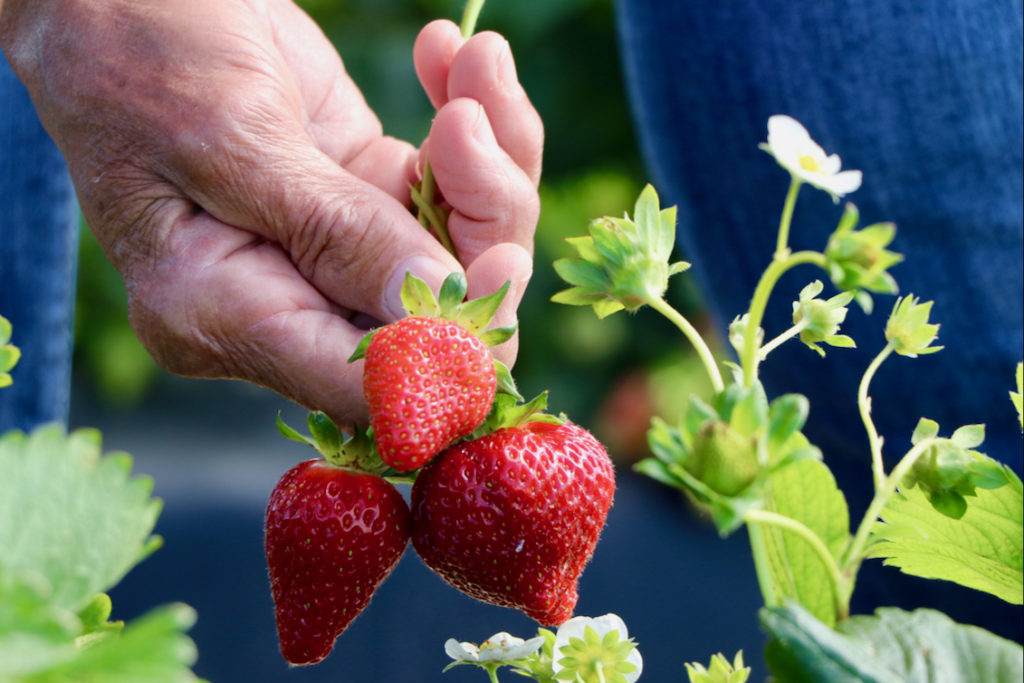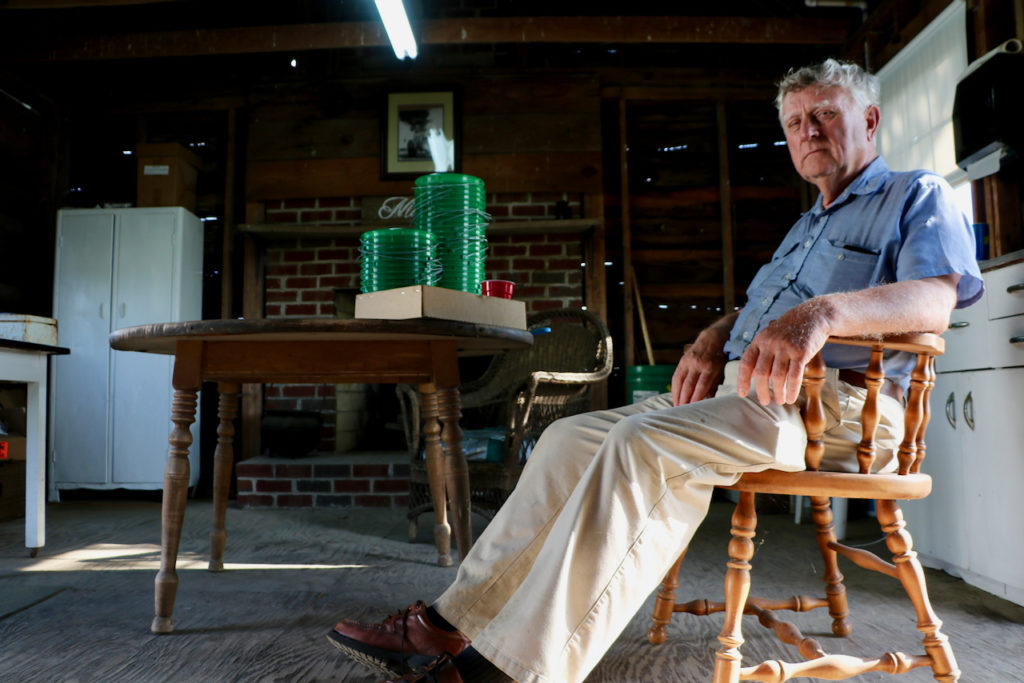
VIRGINIA BEACH — Douglas Munden, a third generation farmer, sat in his office across Princess Anne Road from the home in which he was raised. Outside, rows of strawberries waited to be picked.
It was Saturday evening, winding down a slow day. His strawberry field, about three miles south of the Pungo light, is closed on Sunday, but he would be back at it Monday.
Regulars know where and when to find Munden Farm. One of them stopped by as closing time neared that evening. Farmer greeted customer, and customer headed out to pick the sweet little red hearts, many of which the customer said he gives away. Others are eaten simply, either as they are or with the help of a little sugar.
“There isn’t much to say,” Munden said in his office, speaking of farming. He called it a crapshoot, and he spoke of long hours, hard work and growing older.
“I was raised right here,” he said. “I came home from college in 1968.”
He graduated Virginia Tech after studying agronomy. He went right to work with his father on the family farm. It’s been handed down since his grandfather bought it in 1899.
“You’re naive,” he said, looking back. “You’re young. You want to farm.”
He enjoyed farming with his father, Walter Munden, who died in 1987. They had a system.
“He was management,” Munden said. “I was labor. He was white collar. I was blue collar.”
The farm has evolved over the years from grains to produce. Then, they farmed corn, wheat and soybeans, as well as sweet potatoes and, for a time, white potatoes.
Munden didn’t sugarcoat aspects of farming, such as the risk or the need for insurance, but there also is the mystique of it.
“I like being kind of independent,” he said. “You follow your dad’s footsteps, I guess.”
Strawberries can be a rewarding crop, but there’s always the risk. In the 1990s, Munden had berries in rows on the ground, a system called matted rows. In the next decade, he tried berries again, but they wouldn’t grow.
A few years ago, a neighboring farmer offered to help him shape up some beds on plastic. Those were the sorts of rows what stood just off Princess Anne Road, enjoyed that evening by a lone customer.
“Maybe next weekend,” Munden said.
The farm is open six days a week from 8 a.m. to 6 p.m. Why not Sundays?
“You’ve got to have a day off,” he said. “You’ve got to catch your breath. I was raised not to work on Sundays.”
The customer came in from the field with bright red berries.
“Whew,” Tony Lewis of Burton Station said.
“What’s this ‘whew’?” Munden asked, smiling.
Lewis, smiling back, said he wasn’t a baby.
“Those birthdays keep coming,” he said.

That evening, a little ways down Princess Anne Road, another farmer closed down Vaughan Farm’s Produce for the day.
“Douglas is a good man,” Robbie Vaughan said.
He remembered the conversation he had with Munden about strawberries a few years back. Vaughan offered to help Munden put in rows on plastic rather than in matted rows, which may not yield as high and can be susceptible to weeds.
But I would be your competition, Munden told him.
No, you wouldn’t, Vaughan said.
You sure?
I don’t mind at all, Vaughan said.
They did the work, and those are the rows at Munden’s.
“I don’t see him as competition,” Vaughan said. “I see him as a good neighbor.”
Vaughan talked about how the business of produce farming has changed, with stands and markets becoming something like small attractions. A term of art these days is agritourism. The word can cover a lot of ground, but it speaks to appealing to customers who want an experience of visiting the country as much as just picking up some produce.
Some time back, an interaction with a customer might take a few minutes, Vaughan said. Now, a young family might spend an hour or two. They might pick or look through pre-picked items and other offerings. The kids might horse around. The family might ask the farmer a bunch of questions.
Of course, the stands want customers. But Vaughan said he finds customers tend to stay loyal to one farm or another, year after year. When fields are picked over, they send people to the fields of their neighbors, and vice versa.
Vaughan said farmers often help each other, sharing crops, for example, by supplying something like asparagus – Munden, by the way, was profiled in The Virginian-Pilot in the 1990s as an asparagus pioneer – to another’s stand. Or supplying extra berries for a big weekend, such as for the upcoming Pungo Strawberry Festival.
They share knowledge of the trade, the science and the art of it, what works and – perhaps most especially – what does not.
“It’s helpful to know there’s someone to do it with you,” Vaughan said.

Munden, too, had explained how Vaughan helped him with the berries and how people work with each other around here to make it in farming.
They are farmers, and that means those berries are their livelihoods, but also they are neighbors in a rural community in which folks stay close even when they seem to be spread out. “He helped me, and I help him,” Munden said.
A black and white photograph rested above him in the office. It showed his father atop a tractor. A sign just below the picture read, “Munden Farm.”
“Families go way back,” Douglas Munden said. “If they’re not blood, they’re neighbors. Neighbors become families.”
As his field closed for the evening, Munden’s sister, Linda Grant, stopped by. She came bearing strawberry pie.
Of course, the pie was made with berries grown in the nearby field along Princess Anne Road.
Munden said he was looking forward to dessert. Grant smiled and said she might just eat pie for dinner.
Then came Sunday. As it tends to happen, Monday followed, and the field reopened.
That afternoon, a family picked Munden Farm berries for their restaurant, Harold’s at Town Center.
The rows were loaded.
They picked red berry after red berry.
Brenda Owens, who makes the desserts at the restaurant with her husband’s name, said everything is from scratch at Harold’s.
They’ve been coming to Munden Farm since Munden started planting them, and she said they use hundreds of pounds of berries each year.
A day later, Munden himself was out in the field gathering his berries in the afternoon. His sister might make another pie.
Munden said the pie had been a winner, and that assessment was shared by a neighbor who had been lucky enough to get a pie, too.
It was the best he ever had, the neighbor told the farmer, whether it was because of the recipe, the strawberries or both.

© 2019 Pungo Publishing Co., LLC

